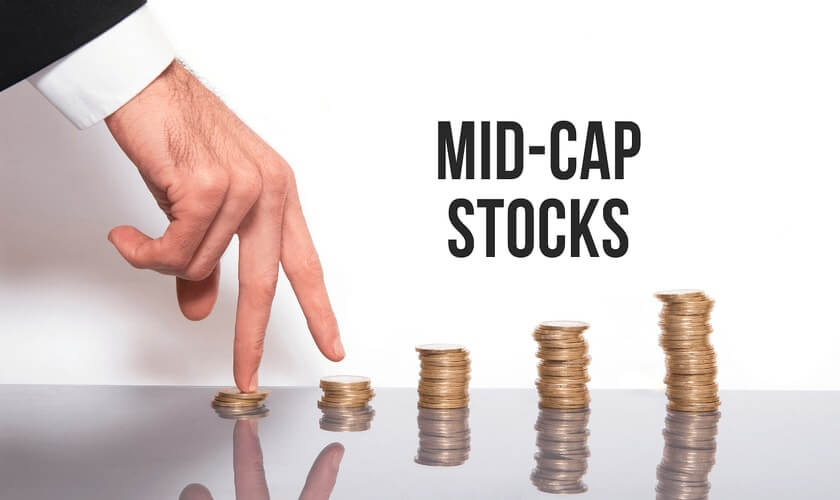Top 10 Most Common Financial Mistakes
Avoid the top 10 most common financial mistakes by learning from the experiences of others. This article provides tips on how to keep your finances on track and reach your financial goals.

Here, we will examine some of the most common financial errors that frequently lead to severe financial hardship. Even if you are already experiencing financial difficulties, avoiding these errors could be the key to your survival.
1. Excessive and Frivolous Spending
Numerous fortunes have been squandered one dollar at a time over the course of history. When you buy that double-mocha coffee, go out to dinner, or order a pay-per-view movie, it may not seem like a huge concern at the time, but the costs of these seemingly insignificant actions may quickly add up.
Spending just $25 per week on eating out results in a cost of $1,300 per year, which may be used to an additional payment on a credit card or auto loan, or could be split among several more installments. When you're going through tough times financially, it's important to make sure you don't make this mistake. After all, if you're only a few dollars away from having to file for bankruptcy or lose your home, then every dollar counts more than it ever has before.
2. Never-Ending Payments
Ask yourself if you truly require the things for which you must continue to make payments on a monthly basis year after year. Things like cable television, music streaming services, or high-end gym memberships can require you to make consistent payments but leave you with no tangible goods to show for it. If money is tight or you just want to save more, adopting a more frugal way of life can go a long way toward fattening your savings and protecting you from the effects of financial strain.
3. Living on Borrowed Money
The use of credit cards to purchase necessities has become relatively commonplace. However, despite the fact that a growing number of consumers are prepared to pay double-digit interest rates on gasoline, groceries, and a variety of other items that are gone long before the bill is paid in full, it is not sound financial advice to do so. The cost of items charged to a credit card is significantly increased by the interest rate. In some instances, using credit can cause you to incur a deficit.
4. Buying a New Car
Each year, millions of new automobiles are sold, but few purchasers can afford to pay cash. However, inability to pay cash for a new vehicle may also indicate inability to afford the vehicle. After all, being able to afford the payment is not equivalent to being able to afford the automobile.
In addition, when a consumer borrows money to purchase a vehicle, he or she pays interest on a depreciating asset, which accentuates the disparity between the value of the car and the price paid. Worse yet, many individuals trade in their vehicles every two to three years and lose money on each transaction.
Sometimes a person is compelled to take out a loan in order to purchase a vehicle, but how many consumers truly require a large SUV? These automobiles are expensive to purchase, insure, and operate. Unless you transport a boat or trailer or need an SUV for your livelihood, it may not be beneficial to purchase an SUV.
If you need to purchase a vehicle and/or borrow money to do so, you should consider purchasing one that uses less petroleum and has lower insurance and maintenance costs. Cars are costly, and if you purchase more than you need, you may be wasting money that could have been used to save or pay off debt.
5. Spending Too Much on Your House
When it comes to purchasing a home, larger is not always preferable. Unless you have a large family, selecting a 6,000-square-foot home will result in higher taxes, maintenance, and utility costs. Do you really wish to make such a long-term, significant decline in your monthly budget?
Acer Aspire Lite 11th Gen Intel Core i3 Premium Metal Laptop
6. Using Home Equity Like a Piggy Bank
Refinancing and taking cash out of your residence is tantamount to relinquishing ownership. In certain instances, refinancing may make sense. If you can lower your rate or refinance and pay off higher-interest debt, you should do so.
Alternatively, one could establish a home equity line of credit (HELOC). This effectively enables you to use the equity in your home as a credit card. This could result in you paying superfluous interest on your home equity line of credit.
7. Living Paycheck to Paycheck
The U.S. household personal savings rate in June 2021 was 9.4%. Many households may live paycheck to paycheck, and if you are unprepared, an unexpected problem can quickly become a disaster.
The cumulative effect of excess places individuals in a precarious position where they need every dollar they earn and one missed paycheck would be catastrophic. This is not the position you want to be in when an economic downturn occurs. If this occurs, you will have few options.
Many financial planners recommend keeping three months' worth of expenses in an easily accessible account. Loss of employment or economic shifts could deplete your savings and trap you in a cycle of paying off debt. A cushion of three months could mean the difference between keeping and losing your home.
8. Not Investing in Retirement
If you do not put your money to work in the markets or through other investments that generate income, you may never be able to retire. For a comfortable retirement, monthly contributions to designated retirement accounts are essential.
Utilize tax-deferred retirement accounts and/or your employer-sponsored retirement plan. Consider the amount of time your investments will have to grow and the amount of risk you are willing to assume. Consult a qualified financial advisor to match this with your goals if feasible.
9. Paying Off Debt With Savings
You may believe that if your debt is costing 19% and your retirement account is earning 7%, exchanging the retirement account for the debt will result in a net gain. However, it is not that straightforward.
In addition to losing the power of compounding, it is extremely difficult to repay those retirement funds, and you may incur substantial fees. With the proper mentality, borrowing from your retirement account can be a viable option, but even the most disciplined planners find it difficult to set aside funds to replenish these accounts.
Typically, when a debt is paid off, the urgency to repay it disappears. It will be alluring to continue spending at the same rate, which could result in a return to debt. If you want to pay off debt with savings, you must live as if you still owe money — to your retirement account.
Also read :- Premiums of new boys on Dalal Street ease in September; analysts allude to rich valuations
10. Not Having a Plan
Your financial future is dependent on current events. People spend countless hours viewing television and scrolling through social media, but they cannot devote two hours per week to their finances. You need to know your destination. Make time spent on financial planning a top priority.
The Bottom Line
To avoid the dangers of overspending, begin by monitoring the small expenses that add up rapidly, and then move on to the larger expenses. Consider thoroughly before adding new debts to your list of payments, and remember that the ability to make a payment is not the same as the ability to afford the purchase. Lastly, make it a monthly priority to save a portion of your income and to develop a sound financial plan.
















.jpeg?updatedAt=1701702728980)





